The PSA CPSU NSW Aboriginal Council looks to a brighter future.
It was an Elder’s words that helped uplift the room.
Des Rumble, a long-time member working in TAFE, took to the microphone as the 2023 PSA CPSU NSW Aboriginal Conference talked about the disappointment of the recent loss of the federal referendum into a Voice to Parliament, the latest in a long list of injustices doled out to a 65,000-year-old culture.
“Australia had a chance to do something very positive, and sadly that did not happen,” said Mr Rumble. “That is not a total loss. I said to friends, ‘Don’t look at this as a defeat. We as people and the non-indigenous people who helped us may be in a minority. But we will one day be the majority.’ Maybe not in our lifetime but it will happen.
“Don’t spend your time too much worrying about this loss: think to the future, that is where we are at.
“Black, white, or brindle; be proud of who you are.”
Conference had begun earlier that day when Aboriginal Council Chair Darrell Brown told attendees they were “all representing our ancestors”. Despite the gloom of the recent referendum result, Mr Brown’s opening addresses took an optimistic tone.
“It’s going to be a great day today,” he said.
PSA CPSU NSW General Secretary Stewart Little echoed Mr Brown’s positive introduction, pointing out it was “fantastic to be able to have another conference”.
“The trade union movement has long been intertwined with the Aboriginal movement: both movements of struggle,” said Mr Little. “Often Aboriginal struggle has been part of the trade union movement.”
Mr Little and the trade union movement’s longest strike was the walk-off in the Pilbara in response to workers not being paid in wages. At Wave Hill station, “it was Aboriginal workers walking off and striking over injustice”.
Mr Little said he hoped there would be a more positive relationship with “senior levels of government” on Aboriginal affairs since the election of the Labor Party under Chris Minns.
It was Premier Minns’s Minister for Aboriginal Affairs and Treaty, David Harris, who was next to the podium, confirming that the “PSA can always knock on his door”.
“Good progressive government is about doing things with people, not to them,” he said. “I am sure these principles will guide me.”
The Minister said debates such as the Voice bring out the best and worst in people.
“You probably saw some pretty base racism,” he said. “It is something that disappoints me. I thought, as a country, it was something we were putting behind us.”
Mr Harris said he had to turn off comments on a social media post about a kids’ Aboriginal dance troupe as “the racism in the comments section absolutely astounded me. This was aimed at young kids.
“I had to mute the post so these young kids could not see what was being written about them,” he said.
Importantly, Mr Harris said he would not let the NO vote and subsequent drop in public support for reconciliation deter him from continuing to negotiate for a treaty between Aboriginal people and the state of NSW.
“We will start a discussion around treaty,” he said, pointing out three commissioners will travel the state to talk about “prior and informed consent”.
“They will be asking, ‘Do you want a treaty process and if you do, what will it look like?’”
The Minister said a treaty is required “because governments break promises: a treaty is about locking in the rules of the game.
“Governments are happy to stick with promises with toll companies and the companies that run the ports, but will happily break promises to Aboriginal people,” he said.
Mr Harris said people may express concerns about treaty, but similar moves have provoked unfounded fears.
“We’ve had the Aboriginal Land Rights Act for 40 years, and the world hasn’t ended.”
He said the process will coincide with truth-telling in schools.
“There were massacres,” he said. “People were poisoned. Soldiers were sent out to shoot people. There is no nice way of putting it.”
William ‘Smiley’ Johnston was next. He opened his presentation talking about his varied career path, including a tough gig as chair of an Aboriginal Land Council.
A part of the Aboriginal and Torres Strait Islander Commission (ATSIC), he said the body, which was dissolved by John Howard, had successes in areas such as housing, economic activity and education. He said it proved it was important to consult people rather than impose rules.
He said ATSIC brought in regional and community plans for Aboriginal people, but the body was doomed the moment Mr Howard was elected, as the Liberal Party Prime Minister always had it in his sights.
“Australia can never be whole until such time we are reconciled in this country with everybody else,” he said, saying the DNA of bureaucracy was still in a colonial mindset, where white experts are better to be consulted with rather than Aboriginal people.
He urged Aboriginal people to take charge, improving school attendance and building more housing on their own land.
“Government comes up with these great ideas: but they don’t know what they are doing,” he said. “We have to change the system: we are going to have blues with our own mob.
“I want our people to train up then build their own houses, and maintain local facilities, keeping money in our communities.”
 Mr Johnstone was disappointed Prime Minister Anthony Albanese failed in his campaign for the YES vote, giving its opponents “a six-month free kick” while the YES campaign sat back.
Mr Johnstone was disappointed Prime Minister Anthony Albanese failed in his campaign for the YES vote, giving its opponents “a six-month free kick” while the YES campaign sat back.
“What role can the PSA play going forward?” he said. “We need to be holding Minister Harris and company to account. Can we move past Reconciliation Action Plans and art on the wall?”
Originally from Dharumbal Country in Central Queensland, Murri-South Sea Islander woman Kristy Masella was next on stage. The Managing Director of Redfern-based Aboriginal Employment Strategy, Ms Masella gave an upbeat presentation brimming with good news about the job market.
“At the moment we can’t fill all the jobs we’re offered for Aboriginal people,” she said. “This is good. We don’t have enough Mob for the vacancies. There are higher-than-market wage on offer for skilled Koori workers.
“Black Fellas are resourceful, creative and innovative. We’re deadly, we have good skills and capabilities and we should be paid well for the work we do.”
She said local, state and federal governments are among the largest employers of Aboriginal people, particularly in regional NSW. However, despite the plethora of vacancies, Ms Masella said there were still some people in the community who required assistance skilling up for the jobs market.
“The bulk of the work we do is supporting people with barriers to employment,” she said. This includes trauma, substance abuse and pyschosocial disorders. Many people need help to get into the workforce.”
Other positive trends in the jobs market included more Aboriginal women seeking leadership and management roles and more Koori graduates.
“It is exciting to see our young ones lead the way, but also good to see older people go back to earn degrees,” she said.
Rachel Bos from the Australian Council of Trade Unions (ACTU) was next with the “bruising” task of talking about the referendum publicly for the first time since the vote.
 “The racism has always been here in this country,” she said. “This campaign just gave it licence to be out in the open. The positive is our allies see it now.
“The racism has always been here in this country,” she said. “This campaign just gave it licence to be out in the open. The positive is our allies see it now.
“I really wish I was here today with a different story to tell you: even if just one state voted YES.”
However, Ms Bos praised the union movement for its role in the campaign, adding she had figures showing that 67 per cent of union members voted YES.
“Over the next 12 months we are going to take a deep breath and wait for the rest of the union movement and affiliates and consider what to do next,” she said. “We need to make sure the ACTU First Nations Committee is full to the brim.”
Darryl Wright from Southwestern Sydney’s Tharawal facility gave a presentation on the organisation’s work, that included a prerecorded message on community empowerment from British public health expert Sir Michael Marmot of the World Health Organization. Sir Michael said engaging the community in projects like Tharawal is fundamental.
Last guest was Executive Director Aboriginal Strategy and Outcomes with the Department of Planning and Environment, Mark DeWeere.
He said his role involves ensuring sure programs work towards self-determination and talked about closing the gap and areas such as policy reform, employment targets and maintenance of culture.
Mr DeWeere said there had been success in areas such as cultural burns to improve country, as well as the Aboriginal Ranger strategy.
He said the Roads to Home Strategy was beginning to improve infrastructure in Aboriginal communities throughout NSW, keeping them up to standards maintained by other parts of the state.
Thanking attendees as the event drew to a close, Assistant General Secretary Troy Wright revisited the disappointment of the referendum result, but committed the union to continue its support for Aboriginal members.
Mr Wright signed off saying the community must take responsibility for itself “because no-one else will”.
He said the union’s executive “will still rely heavily on Aboriginal Council for advice”.
“We are proud to host our Aboriginal Council and the annual conference” said Mr Wright after the event. “The referendum result and the accompanying outpouring of racism will not stop your union from campaigning for better rights for First Nations people, not just in the Public Sector but in wider NSW society.”
In closing the event, Mr Brown praised the attendees and speakers, saying they put on “the best conference we have had yet”.

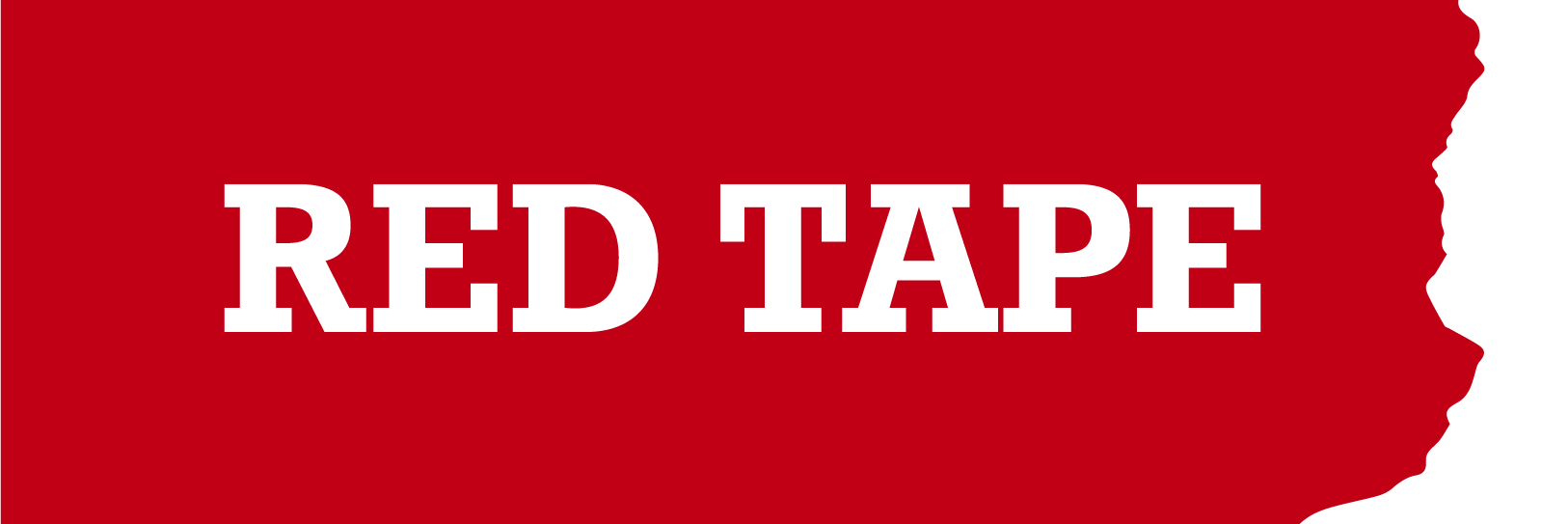



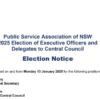

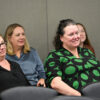
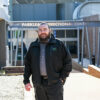
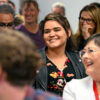


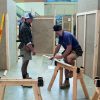
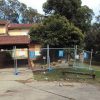
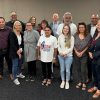
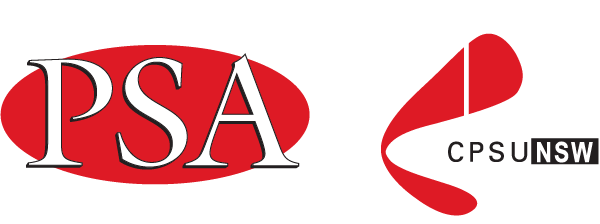
Leave a Comment
Your email address will not be published. Required fields are marked with *